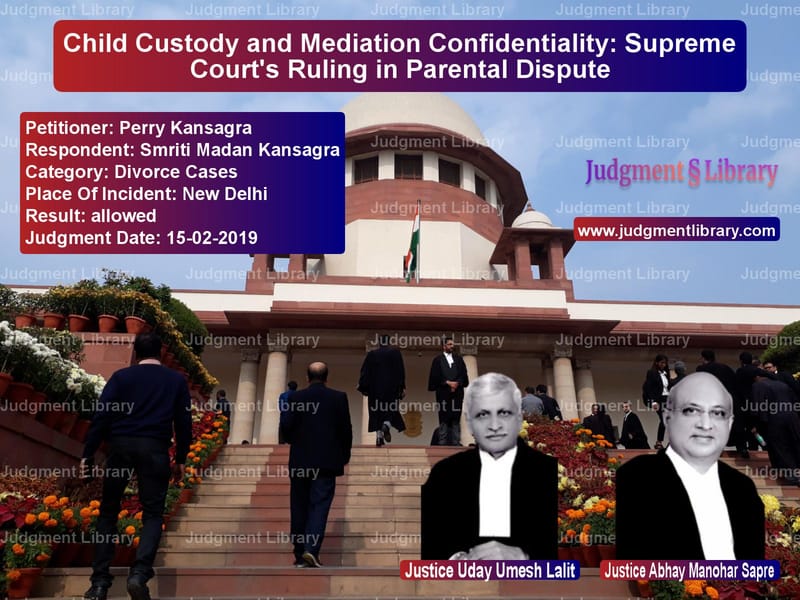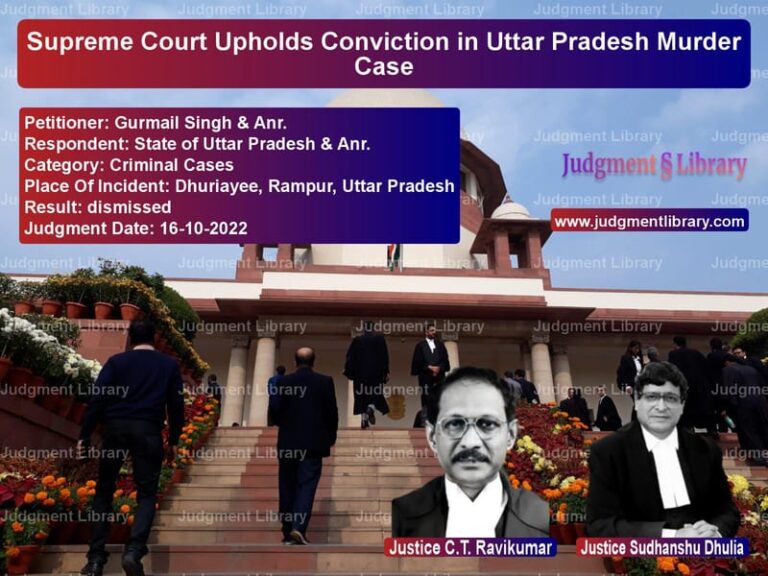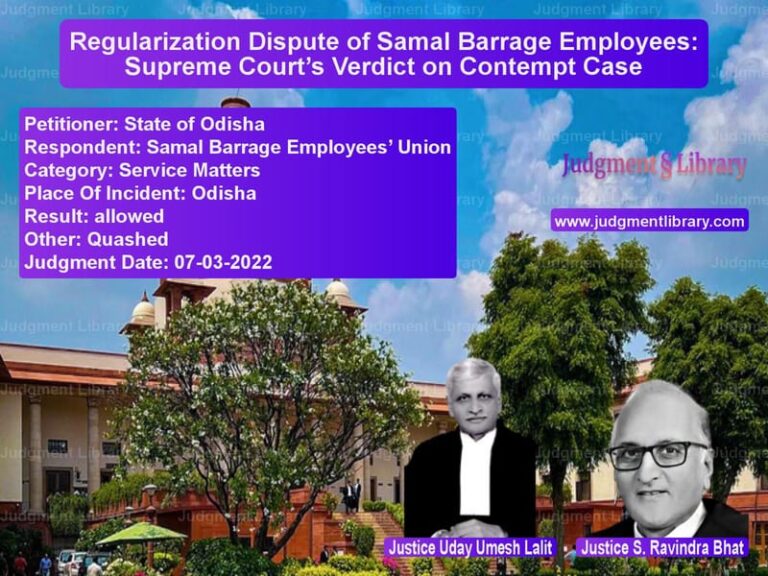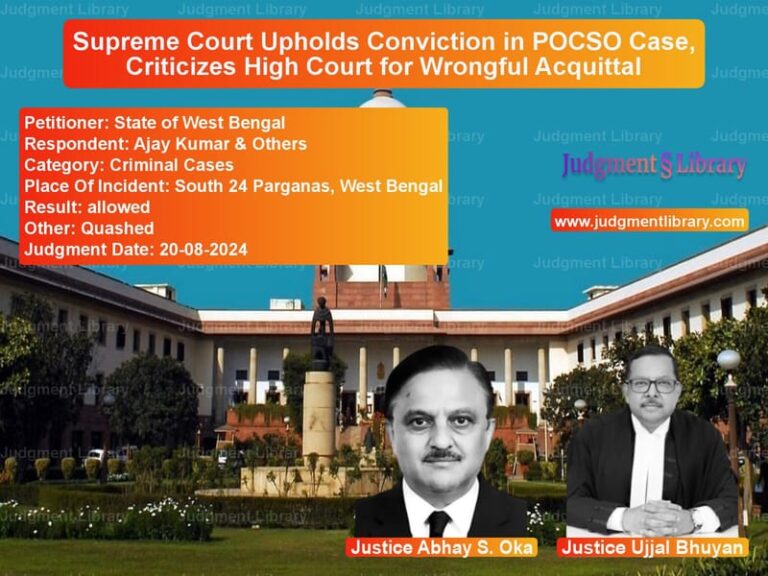Child Custody and Mediation Confidentiality: Supreme Court’s Ruling in Parental Dispute
The Supreme Court of India recently adjudicated on a highly significant issue involving child custody and the confidentiality of mediation proceedings in the case of Perry Kansagra vs. Smriti Madan Kansagra. This case revolved around the custody dispute between two parents, with one being a foreign citizen and the other an Indian citizen. The key questions before the court were the applicability of confidentiality rules in mediation when it involved child custody and whether a family court could rely on mediation reports and child counseling sessions in determining the welfare of the child.
Background of the Case
The dispute originated from a marriage between Perry Kansagra, a Kenyan and British citizen, and Smriti Madan Kansagra, an Indian citizen. They married in 2007, and a son, Aditya Vikram Kansagra, was born in 2009. After residing in Kenya for some years, Smriti returned to India with the child, leading to a custody dispute.
Smriti filed a suit in the Delhi High Court, seeking an injunction to prevent Perry from taking their son out of India. Subsequently, Perry filed for guardianship, asserting his right as the child’s father. The case saw several rounds of legal proceedings, including a mediation attempt that ultimately failed.
Key Legal Issues
- Whether reports prepared by court-appointed counselors and mediators in child custody cases could be relied upon by the courts.
- Whether mediation proceedings, generally confidential, could be used in deciding custody matters.
- What role the court should play in determining the best interest of the child in cross-border custody disputes.
Petitioner’s (Perry Kansagra) Arguments
- The petitioner, Perry Kansagra, argued that the mediation and counselor’s reports were crucial in understanding the child’s best interest and should be admissible.
- He contended that the child’s interactions with the court-appointed counselor demonstrated his willingness to maintain contact with his father and paternal family in Kenya.
- He claimed that Smriti was unjustly preventing the child from forming a meaningful relationship with his father.
- The reports of the counselor and mediator contained vital information about the child’s emotional well-being and should not be disregarded.
Respondent’s (Smriti Madan Kansagra) Arguments
- Smriti argued that mediation proceedings are confidential, and any reports emerging from them should not be considered in court.
- She claimed that allowing the reports to be admitted would violate established legal norms of confidentiality in mediation.
- She also contended that Perry’s request for the child’s custody was driven by personal motives and not the welfare of the child.
Supreme Court’s Observations
The Supreme Court examined the matter by referring to multiple legal precedents on mediation confidentiality and child welfare. The Court observed:
“Complete adherence to confidentiality would be absolutely correct in normal matters where the role of the court is purely adjudicatory. However, such an approach may not be conducive when the court is called upon and expected to discharge its role in parens patriae and is concerned with the welfare of a child.”
“The normal principle of confidentiality in mediation must give way to the paramount interest of the child when custody and guardianship issues are concerned.”
The Court further emphasized that while mediation confidentiality is a fundamental principle, exceptions exist when it comes to child custody cases where courts exercise a special protective jurisdiction.
Key Findings of the Supreme Court
- The Court ruled that mediation reports and child counselor findings could be relied upon when determining the best interests of the child.
- The confidentiality of mediation cannot override the obligation of the court to ensure the welfare of a minor.
- Parents engaged in custody battles must not misuse the principles of confidentiality to suppress crucial evidence regarding the child’s well-being.
- The previous ruling of the High Court disregarding the mediation reports was set aside.
Impact of the Judgment
The Supreme Court’s ruling has far-reaching consequences for family law in India:
- It establishes that in child custody cases, confidentiality in mediation is not absolute and can be overridden in favor of the child’s welfare.
- It sets a precedent for courts to actively use child counseling reports to assess the mental and emotional well-being of children caught in custody disputes.
- It clarifies that a parent cannot claim confidentiality in mediation proceedings if doing so is detrimental to the child’s well-being.
Conclusion
The Supreme Court’s judgment in Perry Kansagra vs. Smriti Madan Kansagra is a landmark decision balancing the principles of mediation confidentiality with the paramount consideration of child welfare. By ruling that courts can rely on child counseling and mediation reports, the decision ensures that custody battles are resolved in the best interest of the child rather than being dictated by procedural technicalities. This judgment is expected to serve as a guiding precedent for future custody disputes involving mediation proceedings.
Petitioner Name: Perry Kansagra.Respondent Name: Smriti Madan Kansagra.Judgment By: Justice Uday Umesh Lalit, Justice Abhay Manohar Sapre.Place Of Incident: New Delhi.Judgment Date: 15-02-2019.
Don’t miss out on the full details! Download the complete judgment in PDF format below and gain valuable insights instantly!
Download Judgment: Perry Kansagra vs Smriti Madan Kansagr Supreme Court of India Judgment Dated 15-02-2019.pdf
Direct Downlaod Judgment: Direct downlaod this Judgment
See all petitions in Child Custody
See all petitions in Domestic Violence
See all petitions in Mutual Consent Divorce
See all petitions in Property Division in Divorce Cases
See all petitions in Judgment by Uday Umesh Lalit
See all petitions in Judgment by Abhay Manohar Sapre
See all petitions in allowed
See all petitions in supreme court of India judgments February 2019
See all petitions in 2019 judgments
See all posts in Divorce Cases Category
See all allowed petitions in Divorce Cases Category
See all Dismissed petitions in Divorce Cases Category
See all partially allowed petitions in Divorce Cases Category







